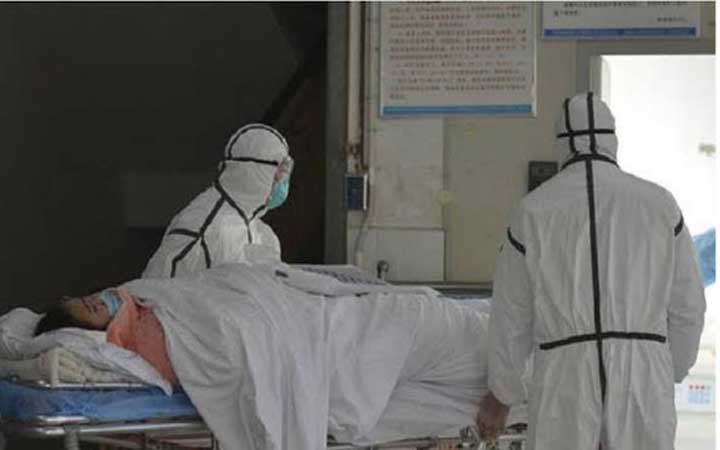For children, serious respiratory infections are on the rise
Germany's public health agency reports more than 7 million cases of respiratory illnesses in a month. Babies and children have been infected by a virus that could threaten lives. Why are there so many cases this year?
Doctors' offices across Germany are full of coughing, sniffing patients who don't just look miserable but probably feel that way, too.
According to the Robert Koch Institute, the country's public health agency, more than 7 million people have come down with various respiratory illnesses within a month. With cases skyrocketing in such a short stretch of time, doctors are barely able to cope.
It's not unusual for cases of infectious disease to increase during the winter months. But this time around, the number is extremely high, and medical and care staff are reaching their limits.
Altogether, researchers have identified around 200 different cold pathogens. Four of them are particularly rife in Germany and Europe at the moment, according to the Robert Koch Institute: influenza viruses, rhinoviruses, SARS-CoV-2 and the respiratory syncytial virus (RSV), which can be be dangerous particularly for babies and toddlers.
RSV can lead to serious symptoms
Many of the children who have been infected by the highly contagious RSV have been sent to the hospital for respiratory support. In some regions of Germany, pediatric wards are completely full.
RSV is a common virus, and occurs on a seasonal basis. It can lead to bronchiolitis, which mainly affects children under the age of 2, causing their small airways to become inflamed and swell up. The airways become narrower, reducing air flow to and from the lungs, which can result in breathlessness and pneumonia. Mucus builds up in the fine bronchioles, the smaller branches of the airways, and can leave them seriously damaged.
Fever and coughing are also typical of an RSV infection. Some children develop symptoms that resemble those of whooping cough, which can also lead to a life-threatening situation.
Adults, for their part, tend to get over such infections without major problems — unless they have serious underlying medical conditions or an immune system that isn't functioning as well as it could.
Lax COVID restrictions leading to more cold infections
During the worst phases of the COVID-19 pandemic, infections by cold viruses — including RSV — were relatively rare. Most people observed the strict hygiene precautions put in place to stop the spread of COVID: frequent hand-washing, mask-wearing and social distancing. This made it considerably more difficult for viruses of all types to spread far and rapidly.
This year, however, the anti-coronavirus measures aren't as strict, both in Germany and many other countries. Cold viruses don't need to overcome distance or face masks to spread their infection, and all those children who escaped infection during the pandemic are now getting sick, creating many more cases than there would be in a typical year.
Many of the babies and toddlers who weren't infected two years ago are now getting sick this winter. The same goes for those who avoided illness last year, and the newborns who are just now experiencing their first wave of colds. All these cases are adding up, causing the overall number to explode.
All these children have not previously had a chance to build up antibodies against RSV, or many other types of cold virus. Such antibodies help the body to fight off viruses and protect itself from pathogens. The hygiene measures to combat the coronavirus meant that the immune systems of babies and toddlers have, until now, never had to deal with cold viruses — making the current wave of infections all the more serious.
What should parents look out for?
A major alarm signal for parents is when a child has difficulty breathing, or makes rattling breath sounds. Whistling noises in the lungs or a sort of crackling can also be an indication of a respiratory illness, such as an RSV infection.
The Robert Koch Institute has said that children with RSV often don't want to eat or drink, and may vomit. Tiredness can also be a symptom; children sometimes become apathetic and lose interest in everything.
Where the symptoms come from exactly, how serious the illness is or whether it could even be life-threatening for a child are best assessed by medical experts. The most important thing to do in such a case is to go to a pediatric doctor, even if making an appointment isn't all that easy at the moment.
The RKI has warned that the danger of infections is far from over, with worldwide case numbers possibly rising even further. France already made an emergency plan for a bronchiolitis epidemic in early November. Other countries may soon be forced to follow its example.
This article has been translated from German.
03 Dec 2022,11:36

















 Live Tv
Live Tv





